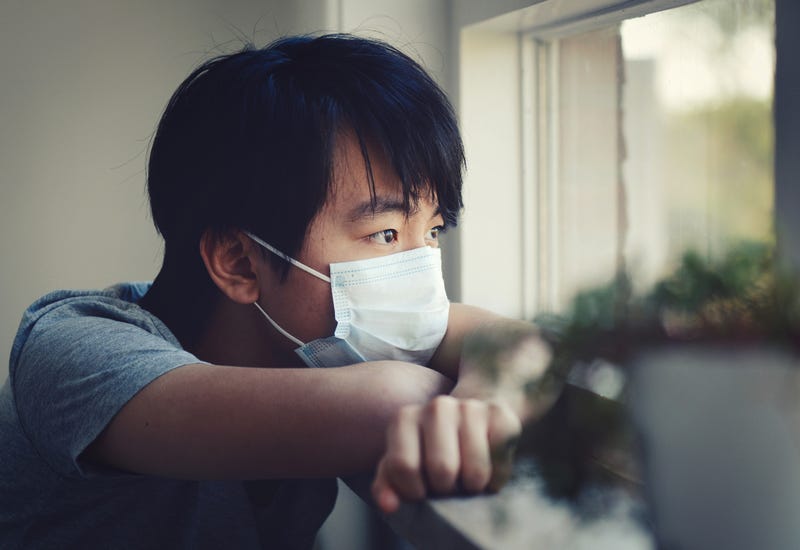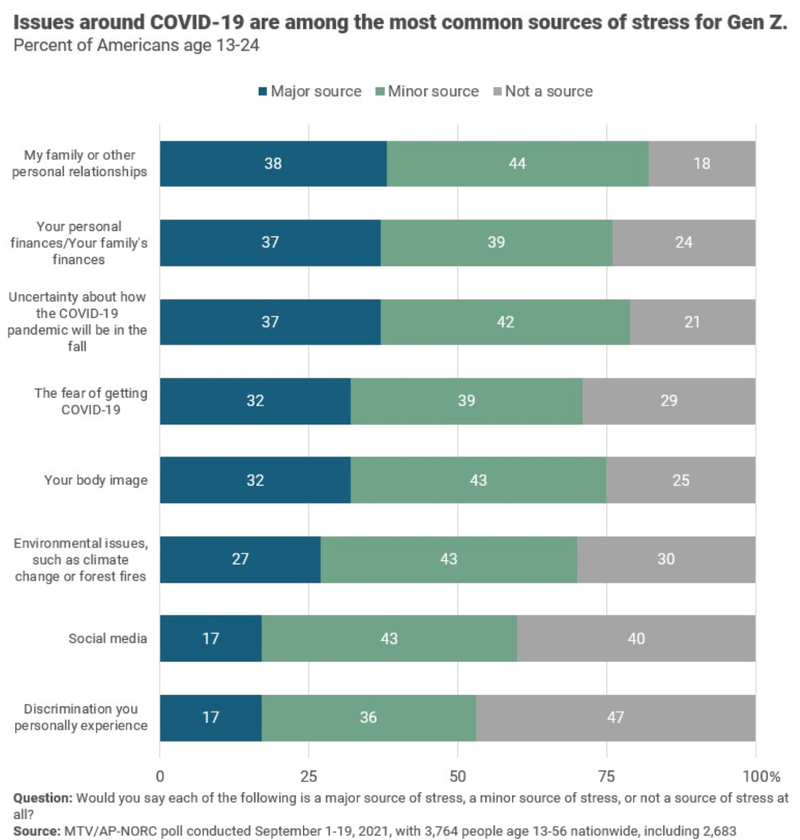
LOS ANGELES (KNX) — Just about everyone has had to wade their way through the waters of the COVID-19 pandemic over the last two years — but it’s Generation Z that’s experienced the most disruptions in their social lives and impact on their overall mental health, according to new research gathered by the Associated Press.
“Among Americans in Gen Z...46% said the pandemic has made it harder to pursue their education or career goals, compared with 36% of Millennials and 31% in Generation X,” according to a survey done by the MTV Entertainment Group and the AP’s NORC Center for Public Affairs Research.

“There was a similar gap when it came to dating and romantic relationships, with 40% of Gen Z saying it became harder,” the AP added, explaining that the participants included in the Gen Z polling were between the ages of 13 and 24.
Aneliza Ruiz, 24, is at the older end of the Gen Z spectrum, but shared her insights with KNX In Depth.
“I have friends who were just graduating college [at the start of the pandemic] and were already nervous about the job market — and they became especially...mentally debilitated by the knowledge that there were going to be that many more limitations on what they could explore,” Ruiz said.
At the time Ruiz was applying for a PhD program, which she said was made particularly murky by the pandemic.
“What dawned on my mind was a sort of realization that I have a little bit more power than I realized,” she said.
“I was in a corporate position before I was a graduate student and was sort of thinking ‘Ok, if this were to continue for another three years, am I really going to be content doing that same kind of work in my home office?’”
While some Gen Zer’s like Ruiz was able to consider the positive sides of the pandemic, research showed that many others struggled to do the same.

“The findings are consistent with what health and education experts are seeing,” the AP said.
“After months of remote schooling and limited social interaction, teens and young adults are reporting higher rates of depression and anxiety. Many are also coping with academic setbacks suffered during online schooling.”
Some health experts have linked the younger group’s struggles with mental health to the development of their brains.
“It’s this perfect storm where you have isolated learning, decreased social interaction with peers, and parents who also are struggling with similar issues,” Dr. Cora Breuner with Seattle Children’s Hospital told the AP.
“It means that, while young people are falling behind in school, they’re also behind on the skills needed to cope with stress and make decisions.”
The Associated Press contributed to this report.

